“I think you should see if the Writing Project is doing a Summer Institute this year,” my mentor teacher, Chanda Stafford, said to me during one of our many meetings last year. As a first year teacher, I had no idea what that meant, so I nodded, and absent-mindedly made a note of it on her enormous list of goals and tasks for me this year. A few days later, an email appeared in my inbox with the link to the Chippewa River Writing Project.
The next few months flew by in a flurry of drafting applications, preparation, and coaching. When the acceptance e-mail appeared in my inbox one morning, I felt a rush of emotions. I was mostly excited, but extremely nervous. I wasn’t sure what a newbie in this profession could really bring to the table, and at the end of my first year of teaching, I was feeling the PTSD blur that many veterans in the career warned me I would feel. Was I really ready to be a part of this professional organization?
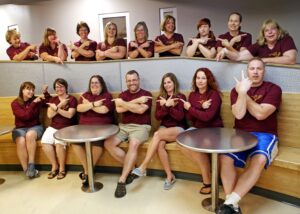
After I completed the first day of the institute, I called my mentor and said,“These people are nuts! How in the world did you survive?” My head had been swirling with nightmares of the prodigious multileveled project portfolio, hours of research driven on the gallons of caffeine I’d consumed, and the stomach churning nausea that appeared every time I heard the words ‘teaching demonstration.’ I was a brand new teacher! I had nothing to contribute to a room full of veteran teachers! Even the other first year teachers had more teaching experience than me!
“Trust the process Grasshopper, I’d never recommend something I didn’t think you could handle,” was her frustratingly calm response, though I heard a hint of amusement in her voice. Her baptism by fire routine was some I had experienced more than once that year, and though I knew it generally worked, I wasn’t sure I was ready for this trial. Was anyone ready for this kind of a trial?
I remember leaving every day of the SI with a billion ideas racing through my head of what I wanted to do next year. All the sessions were like the 12 Days of Christmas. I had 12 new techniques to research, 11 new technology tricks, 10 books to add to my reading list, 9 new people to follow on Twitter, and yet another new idea for my portfolio. Despite being beyond exhausted, the idea always at the forefront of my mind was how excited I was to go back the next day. Those three weeks were some of the best and most challenging in my career and it was worth every minute.
Having been given the unique opportunity to be a part of the SI after finishing my first year of teaching, I knew this was one of the biggest steps I could make on my way to becoming a successful English teacher. However, the full reality of what I gained from CRWP did not hit me until recently. Over winter break, I opened up my reflection notes from last year and compared them to my notes from this year. Studying those notes allowed me to truly see the confident, capable, knowledgeable, and effective teacher I am becoming. By incorporating their techniques and ideas, I’ve been able to make each task a continual lesson in digital literacy and create a bright new writing future for myself and my students.
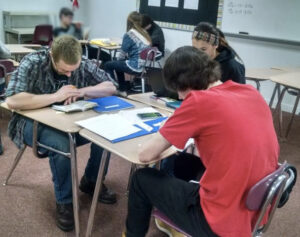
If you walked into my classroom this year, you’d see a whirlwind of writing activity. My 10th grade students just completed essays on the book Red Glass by Laura Resau and one option had them picking apart how two characters from completely different cultures define the concept of “family.” My 11th grade students are tackling allegory, one stave of A Christmas Carol at a time, and debating if its central message still applies to life today. I’m also pushing my 9th graders out of the comfort zone a little by making them collaborate in a Google Doc Web Quest where they are working to understand aspects of Shakespeare and Romeo and Juliet before we begin to read the play. Many of these writing assignments are activities that a year ago I could only see in that hazy future that all young teachers dream about.
Anyone who has gone through the SI will tell you it’s impossible to list everything you gained from it, but I found I had three big takeaways that really helped me further my journey to become the teacher I am destined to be.
1.) “Work is due, not done.”
Part of what makes the SI so invaluable is that it pushes everyone to their limits. As a perfectionist, I found myself particularly frustrated that I couldn’t spend a million hours perfecting each project. Then, during one of our writing group’s many collaborative sessions, Troy Hicks said something I will never forget: “It’s due, not done.”
I’ve always enjoyed the editing stage of the writing process thanks to my perfectionism. When I draft a piece, I make sure to give myself as much time as possible to play with my words, organization, and voice. I don’t even want to admit how many drafts this blog went through before I sent it to the moderators and editors. However, it never fails that every time I turn in a project, I find a ‘mistake’ with it afterward. Realizing there are remaining mistakes, makes me feel like a failed writer, though I know I’m far from it. This kind of confidence yo-yoing has defined much of my writing life. As I prepared my room before the year began, the lighting bolt hit. What emotions did my students experience when I returned their papers after they put their hearts and souls into their writing and there still were ‘mistakes?’
Thanks to suggestions from my mentor, I have always allowed my students to redo ‘final drafts’ of papers for a higher grade; yet, very few students took me up on that offer. So, this year, I started telling my students, “It’s due, not done,” and constantly explained what that means. I reminded them that writing is a process, one that rarely ends once the assignment is ‘due,’ and that we grow as writers with reflection and time. As a result, I’ve seen many more of my students rewrite and fix papers for a higher grade often just to earn a point or two more. My students are now more willing to take chances, make mistakes, and to try harder to improve their craft rather than just meet requirements in a rubric. By changing my own philosophy on writing, I’ve been able to change my students’.
2.) My students were not writing enough.
This is an odd statement for an English teacher to make. If we look at writing as simply putting pencil to paper, then my students were doing it every single day. However, answering guided reading questions and doing summative paper assignments is not enough. Writing is one of the greatest ways to assess understanding, and I was missing many opportunities to use writing as a way to scaffold understanding about my texts and as formative assessments.
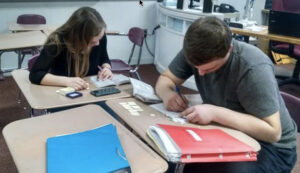 Now, I do short analytical writing assignments with every set of chapters we read in novels or with each story we read. About once a week, my students are analyzing events, discussing themes, and arguing about characters’ choices in a formal piece of writing where they have to pull evidence from the reading to support their answers. Increased composition has allowed me to deepen their reading comprehension and help their writing evolve and improve with frequent practice. I have also been using these shorter writing assignments to guide my students to the big summative papers. By giving my kids the chance to focus on something as it happens during that section of reading, they are building themselves up to see how that aspect transforms over the book, instead of reflecting on it as they are drafting their final essay.
Now, I do short analytical writing assignments with every set of chapters we read in novels or with each story we read. About once a week, my students are analyzing events, discussing themes, and arguing about characters’ choices in a formal piece of writing where they have to pull evidence from the reading to support their answers. Increased composition has allowed me to deepen their reading comprehension and help their writing evolve and improve with frequent practice. I have also been using these shorter writing assignments to guide my students to the big summative papers. By giving my kids the chance to focus on something as it happens during that section of reading, they are building themselves up to see how that aspect transforms over the book, instead of reflecting on it as they are drafting their final essay.
3.) Incorporating writing in a myriad of genres is critical to student success.
In addition to not having them write enough, I realized I wasn’t giving my students enough experience in a variety of genres. I was only assigning analytical and argumentative essays. However, being able to show proficiency in this type of composition does not necessarily make students lifelong writers. To make our children fluent in many different genres, they need to understand that pieces change based on audience, purpose, and medium.
Composing an academic essay is not done the same way as a letter, comic strip, infographic, recipe, or memoir; yet, all of these genres can be used to show understanding. Writing in these different styles changes based on the audience. Writing, as well as language, is situational. Taking kids on an adventure through multiple genres allows them to exhibit creativity, have some choice in their writing, and illustrate their thinking in new ways which never lets their writing become ‘boring’ or ‘stale.’
So far this year, my students have composed recipe memoirs, a narrative about bullying, and an argumentative police report, along with their normal analytical and argumentative essays. In our second semester, my kids will create comic strips, editorials, infographics, and reflective letters. This will be a big change for the students who had me last year and wrote only essays. Now they are writing more often and in more genres. They, along with my new kids, will grow, just as I have grown as writer and a teacher of writing.
My classroom has evolved so much in a year, which makes me excited for a number of reasons. One is that I’m on the right track to become the English teacher I’ve always dreamed of. Another is with the big jump that I experienced with CRWP in just one year, I can only imagine where I’ll be in five, ten, and twenty years. CRWP and NWP are always pushing the envelope on how to teach writing, and I can’t wait to learn right along with my fellow teacher consultants.
 Rebecca “Becky” Schwartz (@RSchwartz702) is an ELA and Social Studies teacher at Hillman Junior/Senior High School in Hillman, MI. She is a teacher consultant for Chippewa River Writing Project (2015).
Rebecca “Becky” Schwartz (@RSchwartz702) is an ELA and Social Studies teacher at Hillman Junior/Senior High School in Hillman, MI. She is a teacher consultant for Chippewa River Writing Project (2015).

This work is licensed under a Creative Commons Attribution-NonCommercial-ShareAlike 4.0 International License.
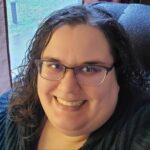
Becky Schwartz is an English, Social Studies, and AP Computer Science Principles teacher for Springport High School in Springport, Michigan. She has been a teacher consultant for CRWP since 2015.
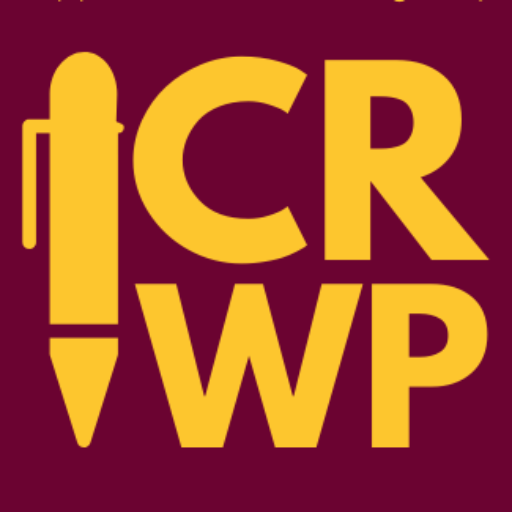
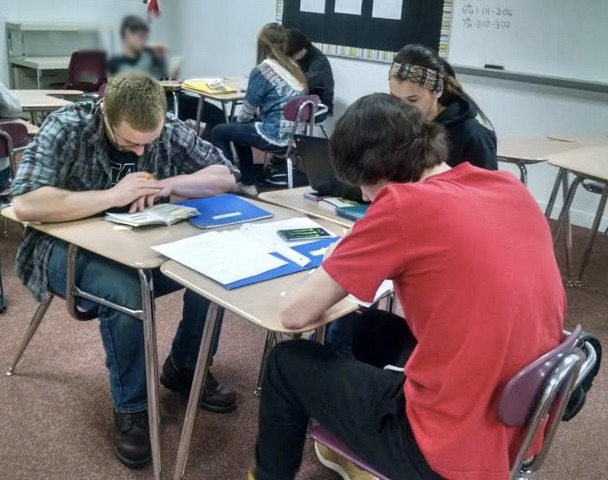
Leave a Reply
You must be logged in to post a comment.